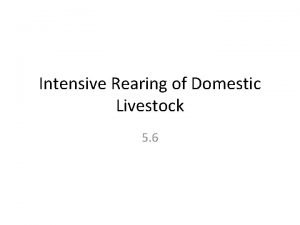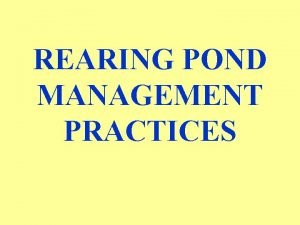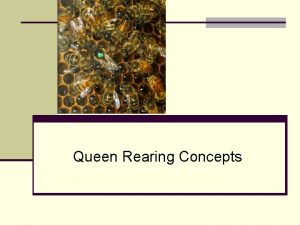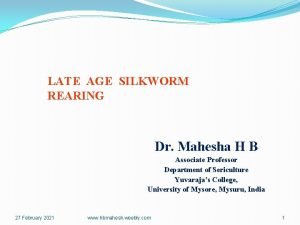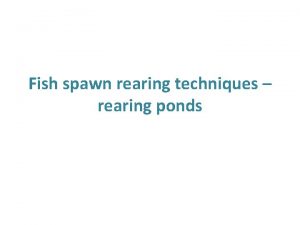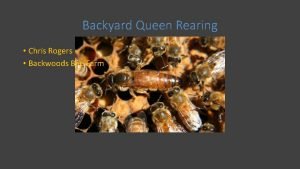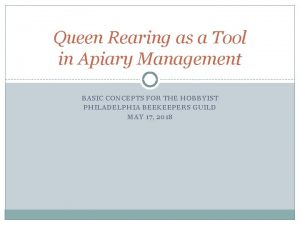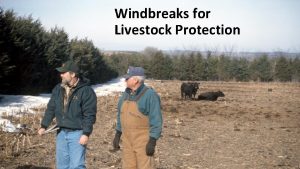Intensive Rearing of Domestic Livestock 5 6 Learning







- Slides: 7

Intensive Rearing of Domestic Livestock 5. 6

Learning objectives: • How does rearing animals intensively increase the efficiency of energy conversion?

Intensive rearing of livestock • This produces the max. yield of meat, eggs and milk at the lowest possible cost. • What are the most commonly reared animals?

Intensive rearing and energy conversion • Energy is lost at each trophic level of a food chain e. g. Energy is lost as heat during respiration. • Intensive farming minimises energy losses, thereby converting the smallest amount of food energy into the greatest quantity of animal mass. • More efficient energy conversion is when the max. possible amount of energy from respiration goes into growth. • Animals are kept in confined spaces (barns, cages, small enclosures) – factory farming!

How does factory farming increase the energy conversion rate? • Movement is restricted and so less energy is used in muscle contraction. • Most ‘factor farmed animals’ are warm blooded. By keeping their environment warm, heat loss is reduced from the body. • Control feeding to ensure animals receive optimum amount and type of food for max. growth. No wastage. • No predators, therefore no loss of energy to other organisms in the food web.

Other mechanisms to improve the energy conversion rate? • Selective Breeding – produces animals which are more efficient at converting the food into body mass. • Using hormones to increase growth rates. Meet the Super Cow!

Debate: Using pages 80 -83 from the student text book prepare a debate on ‘Should Intensive Farming Be Banned? ’ • Fast food takeaway restaurant owner – Rob • Dinner man – Ed • Restaurant Owner (A la carte) – Sam • Zoo keeper – Lucy • Struggling single mother, 3 children, works P/T in Tesco – Charlotte. • Wealthy organic farmer – Lewis • Wealthy Intensive farmer – Bronwyn • Successful Lawyer, 5 children – Kate • Student at Leicester University, Maths Student, 2 nd year - Greg • Butcher - Nikita • Middle aged Hippy & Green peace Supporter - Wa Wei
